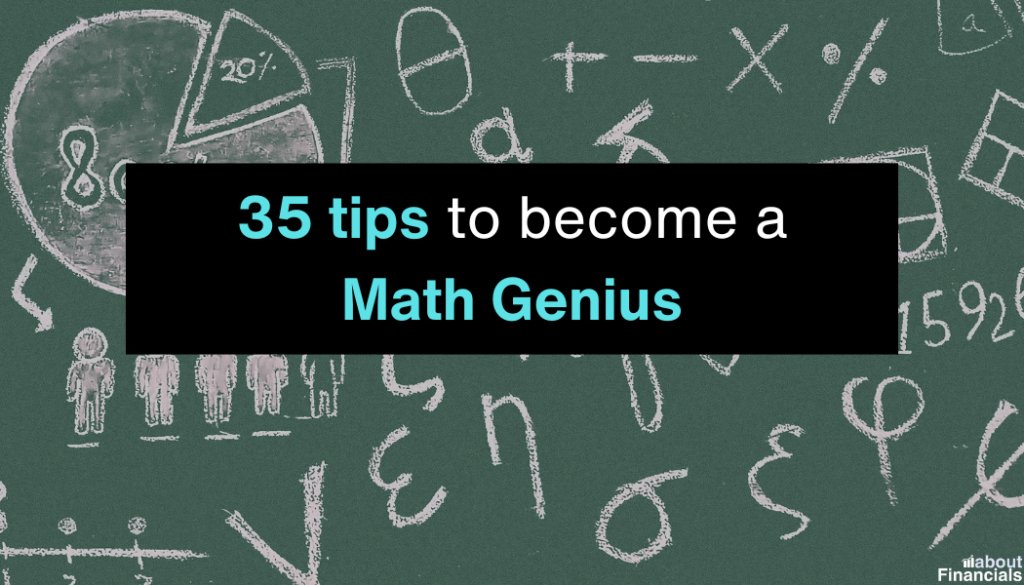Are you wondering how to become a math genius?
Mathematics is a captivating discipline that opens doors to countless opportunities and empowers you with valuable problem-solving skills.
From physics to economics, medicine to engineering, mathematics forms the backbone of knowledge and innovation.
It provides us with a language to understand patterns, quantify phenomena, and solve complex problems.
Whether you’re exploring the depths of space or analyzing financial markets, a strong foundation in mathematics opens doors to endless possibilities and empowers you to make meaningful contributions in your chosen field.
This practical guide will provide you with actionable steps to unlock your full mathematical potential and become a math genius.
1. Mastering basic arithmetic operations
To become a math genius, start by mastering the foundation of mathematics, which is basic arithmetic operations.
Embrace addition, subtraction, multiplication, and division as your companions on this journey. Practice mental math exercises to improve your speed and accuracy.
Pro Tip – when you go grocery shopping, challenge yourself to calculate the total cost of items in your cart mentally. By honing your arithmetic skills, you’ll build a solid groundwork for tackling more complex mathematical concepts.
2. Understanding number systems and properties
Familiarize yourself with concepts such as prime and composite numbers, odd and even numbers, and divisibility rules. For instance, when you encounter a problem that involves calculating discounts or interpreting data presented as percentages, your understanding of number systems and properties will guide you to the correct solution.
3. Learning algebraic concepts
Algebra is the gateway to abstract mathematical thinking. Dive into algebraic concepts by grasping the fundamentals of variables, constants, and equations.

Solve linear equations, manipulate algebraic expressions, and explore the intricacies of inequalities.
Pro Tip – Imagine you’re planning a road trip and need to determine how long it will take to reach your destination based on your driving speed. Algebra allows you to express this relationship as an equation and solve for the unknown variables, helping you plan your journey efficiently.
4. Exploring geometry and trigonometry
Geometry introduces you to the world of shapes, angles, and spatial relationships.
Explore the properties of triangles, circles, and polygons. Dive into concepts like area, perimeter, volume, and angles.
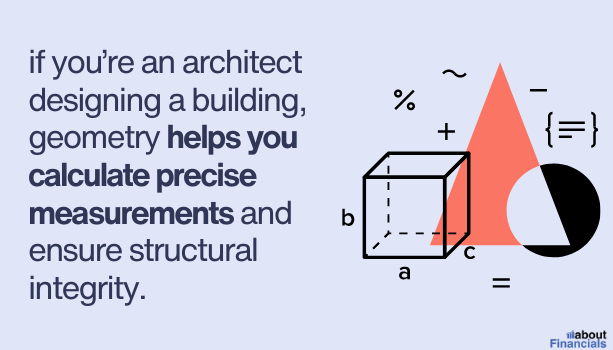
Trigonometry, a branch of geometry, focuses on the relationships between angles and sides of triangles.
Pro Tip – Practical applications of geometry and trigonometry are abundant. For instance, if you’re an architect designing a building, geometry helps you calculate precise measurements and ensure structural integrity.
5. Studying calculus
Calculus, often considered the pinnacle of mathematical achievement, deals with change and motion.
Start by understanding the basic concepts of limits, derivatives, and integrals.

Pro Tip – Apply calculus to analyze rates of change, optimize functions, and solve real-world problems. For example, if you’re fascinated by physics, calculus allows you to model the motion of objects, calculate velocities and accelerations, and predict future behavior.
6. Embrace challenges
Don’t shy away from difficult problems; instead, dive in headfirst. When you encounter a challenging math concept or problem, approach it with curiosity and a willingness to learn.
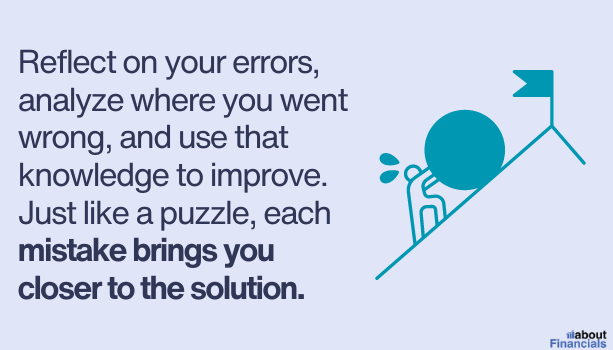
If you make mistakes along the way, don’t get discouraged. Instead, see them as valuable stepping stones toward understanding. Reflect on your errors, analyze where you went wrong, and use that knowledge to improve. Just like a puzzle, each mistake brings you closer to the solution.
Pro Tip – Imagine you’re solving a complex algebraic equation, and you make a mistake simplifying one of the terms. Instead of giving up, you examine your error, identify the incorrect step, and correct it. Through this process, you gain a deeper understanding of the concept and improve your problem-solving skills.
7. Believe in the ability to improve
A crucial aspect of becoming a math genius is believing in your ability to improve with effort.
Understand that intelligence in math is not fixed but can be developed through practice and dedication.
Embrace the mindset that with each new concept you learn, each problem you solve, and each challenge you overcome, you are strengthening your mathematical abilities.
Pro Tip – You come across a challenging geometry problem that seems beyond your current abilities. Instead of feeling defeated, you remind yourself that you have the power to improve. You study the problem, seek guidance, and persistently work on it. As you unravel the solution step by step, your belief in your ability to conquer difficult math challenges is reinforced.
8. Seek out resources to overcome obstacles
No math genius becomes so in isolation. Seek out resources and support to help you overcome obstacles along your mathematical journey.
Utilize textbooks, online tutorials, educational websites, and math-related apps to supplement your learning.
Engage with fellow math enthusiasts, join study groups, or participate in online math communities to share knowledge and gain different perspectives.
Pro Tip – If you’re struggling to understand a complex calculus concept. Instead of wrestling with it alone, you seek out additional resources. You find online video lectures and consult your calculus teacher for clarification. With the help of these resources and support, you gain a clearer understanding of the concept and can progress further in your math genius journey.
9. Solve math problems daily
Set aside dedicated time each day to tackle a variety of math problems.
Start with problems aligned with your current level of knowledge and gradually increase the difficulty as you progress.
Regular problem-solving enhances your critical thinking and analytical skills, solidifies your understanding of concepts, and builds your problem-solving toolkit.
Pro Tip – Dedicate 30 minutes each day to solve a few math problems from a textbook, online resource, or math workbook. Choose problems that challenge you but are within your grasp. As you consistently practice, you’ll witness improvements in your problem-solving abilities, boosting your math genius potential.
10. Engage in mental math exercises
Incorporate mental math practice into your daily routine.
Calculate simple arithmetic operations mentally, estimate quantities, and solve puzzles that require quick mental calculations.
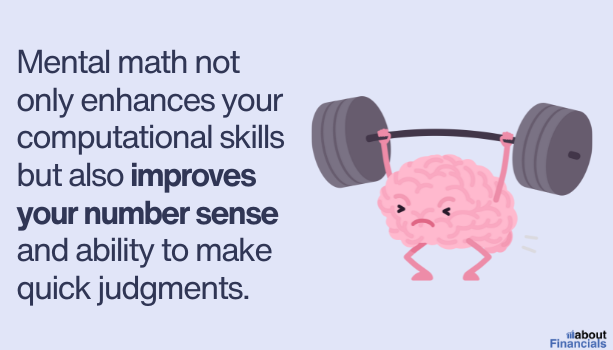
Mental math not only enhances your computational skills but also improves your number sense and ability to make quick judgments.
Pro Tip – While waiting for a bus or standing in a queue, challenge yourself to mentally add up the numbers on license plates or calculate the total cost of items in a shopping cart. These small mental math exercises can be done anywhere, reinforcing your math genius skills throughout the day.
11. Utilize math apps and online resources
Explore math apps that provide practice problems, step-by-step solutions, and adaptive learning features.
Access online platforms that offer tutorials, video lessons, and interactive exercises.

These resources cater to various math topics and allow you to practice at your own pace, providing immediate feedback and tracking your progress.
Pro Tip – Download a math app that focuses on the specific areas you want to improve, such as algebra or geometry. Utilize its practice modules and interactive features regularly. Additionally, explore online platforms that offer free math courses or tutorials, and incorporate them into your learning routine.
12. Join math clubs or competitions for additional practice
Math competitions push your limits, expose you to different problem-solving strategies, and foster a competitive yet supportive environment.
Pro Tip – Seek out local math clubs or school organizations that focus on mathematics. Engage in group problem-solving sessions, participate in math games, and discuss math topics with fellow enthusiasts. Additionally, explore regional or national math competitions and take part in them to challenge yourself and gain valuable experience.
13. Understand the problem thoroughly
Read the problem carefully, identify the given information, and determine what is being asked. Pay attention to any specific conditions or constraints mentioned.
Understanding the problem ensures that you’re on the right track from the start and prevents wasted effort on irrelevant paths.
Pro Tip – Suppose you’re given a word problem that involves calculating the total cost of multiple items with different prices and quantities. Before diving into calculations, read the problem carefully, identify the items, their prices, and the desired quantity.
14. Break down complex problems into smaller parts

Break down the problems into smaller, more manageable parts. Identify the key components or sub-problems within the larger problem and tackle them one at a time. This approach allows you to focus your thinking, make progress incrementally, and maintain clarity throughout the problem-solving process.
Pro Tip – Consider a geometry problem that involves finding the area of a complex shape. Break it down into simpler shapes, such as triangles, rectangles, or circles, that compose the larger shape. Solve for the area of each smaller shape separately and then sum them up to find the total area.
15. Use logical reasoning and critical thinking
Apply logical reasoning to analyze the given information, identify relevant relationships, and deduce conclusions.
Think critically about the problem, considering different perspectives and potential approaches. Question assumptions, evaluate the validity of intermediate steps, and ensure that your solution aligns with the problem’s requirements.
Pro Tip – When working on a logic puzzle, employ critical thinking skills to deduce the correct solution. Analyze the given clues, eliminate possibilities that contradict the clues, and draw logical inferences to narrow down the potential solutions.
16. Explore different strategies and approaches
Expand your problem-solving toolkit by exploring different methods and techniques. Experiment with various approaches, such as working backward, using visual representations, or employing algebraic equations.
By exploring different strategies, you gain flexibility and a deeper understanding of mathematical concepts.
Pro Tip – When faced with a multiplication problem, explore alternative strategies beyond the standard algorithm. Try using estimation, repeated addition, or breaking down numbers into factors to approach the problem from different angles.
17. Practice problem-solving techniques regularly
Regularly expose yourself to a variety of math problems and actively engage in solving them.
Practice not only builds your mathematical skills but also strengthens your problem-solving instincts and intuition.
Pro Tip – Set aside dedicated time each week to solve a set of challenging math problems. Utilize problem banks, online platforms, or math workbooks that offer a diverse range of problem types and difficulty levels.
18. Consult textbooks and reference materials
Consult reputable math textbooks that cover the topics you want to explore in-depth. These resources often present clear explanations, examples, and practice problems to solidify your understanding. Refer to reference materials, such as math dictionaries or encyclopedias, for quick explanations of mathematical terms or concepts.
Pro Tip – If you’re delving into calculus, consult a well-regarded calculus textbook that offers comprehensive coverage of the subject. Use the textbook to read the theory, study worked examples, and attempt the practice problems to reinforce your knowledge.
19. Engage with math communities and forums
Join online math communities or forums where individuals with similar interests discuss math-related topics, share resources, and provide support. Actively participate in discussions, ask questions, and contribute your knowledge to foster a collaborative learning environment.
Pro Tip – Join an online math forum where you can ask questions about challenging math problems or seek recommendations for resources. Engage in discussions, share your own insights, and learn from the experiences and perspectives of other members.
20. Seek guidance from teachers, mentors, or tutors
Engage with mentors who can provide mentorship and share their own experiences as math enthusiasts. Consider working with a math tutor who can provide personalized guidance and assistance tailored to your specific needs.
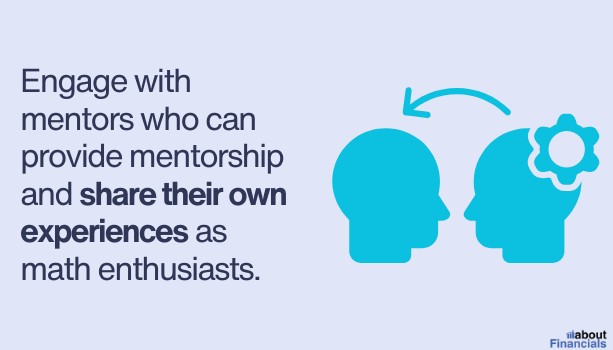
Pro Tip – Approach your math teacher and express your interest in further exploring a particular topic. Seek their guidance on additional resources, practice problems, or challenging projects to enhance your understanding. If available, connect with a math mentor who can provide insights and advice based on their own mathematical expertise.
21. Understand the practical use of math in various fields
Mathematics is not limited to abstract concepts but finds relevance in everyday life and diverse disciplines. Explore how math is used in fields like engineering, finance, computer science, physics, and more. Understand how mathematical principles and techniques are employed to solve real-world problems and make informed decisions.
Pro Tip – In the field of architecture, math is utilized to design structurally sound buildings, calculate material quantities, and optimize energy efficiency. By understanding the practical use of math in architecture, you can appreciate the importance of concepts like geometry, trigonometry, and calculus in creating functional and visually appealing structures.
22. Apply math concepts to solve real-life problems
Seek opportunities to solve practical problems using math skills. Identify challenges or situations in your daily life where mathematical reasoning can provide insights or solutions.
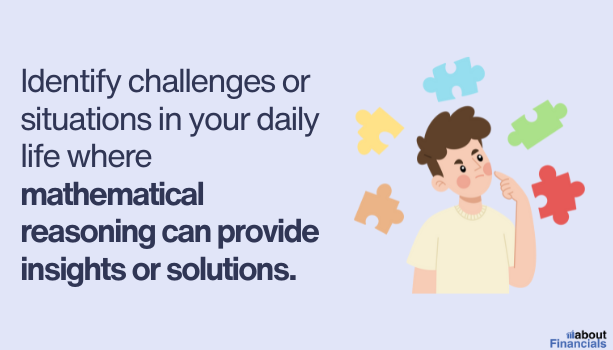
By applying math to real-life problems, you enhance your problem-solving skills, develop a deeper understanding of mathematical concepts, and appreciate the tangible impact of mathematics.
Pro Tip – Suppose you’re planning a road trip and need to calculate the most fuel-efficient route. By applying concepts like distance, speed, and fuel consumption rate, you can use mathematical formulas to determine the optimal route, saving time and resources during your journey.
23. Seek out interdisciplinary connections
Seek out opportunities to explore these connections and discover how math can complement and enhance other fields of study. By embracing interdisciplinary connections, you expand your perspective, gain new insights, and apply math in innovative ways.
Pro Tip – Explore the intersection of math and music. Understand how mathematical concepts like rhythm, frequency, and harmony influence musical compositions. By applying mathematical principles, such as ratios and patterns, you can analyze and create music with a deeper appreciation of its mathematical foundations.
24. Practice explaining math concepts to others
Practice explaining math concepts to friends, family members, or fellow students. Break down complex ideas into simple, understandable explanations.
By teaching others, you solidify your own understanding of the concepts and improve your ability to articulate mathematical ideas clearly.
Pro Tip – Choose a math concept, such as fractions, and explain it to a friend who may be struggling with the topic. Use simple language, provide relatable examples, and address any misconceptions. Through this practice, you strengthen your own understanding while helping others grasp the concept.
25. Engage in mathematical discussions and debates
Engage with peers or join math clubs where you can participate in lively discussions about mathematical concepts, problem-solving strategies, or theorems.
Engaging in debates challenges your thinking, sharpens your argumentation skills, and deepens your understanding through different perspectives.
Pro Tip – participate in a math club meeting or online discussion forum where members debate the merits of different approaches to solving a challenging math problem. Engage in respectful exchanges, presenting your reasoning and considering alternative viewpoints.
26. Write math proofs or essays
Practice constructing logical and coherent arguments to prove mathematical statements. Explain each step clearly, ensuring that your reasoning is sound and easily understandable.
Writing math essays allows you to delve deeper into mathematical concepts, organize your thoughts, and articulate your ideas effectively.
Pro Tip – choose a theorem or mathematical concept that interests you, and write a proof or an essay explaining it. Break down the steps, provide clear explanations, and justify each statement. By writing proofs or essays, you strengthen your ability to communicate complex mathematical ideas in a structured and concise manner.
27. Present mathematical ideas or projects
Prepare presentations or demonstrations to explain a mathematical concept, problem, or project to an audience.
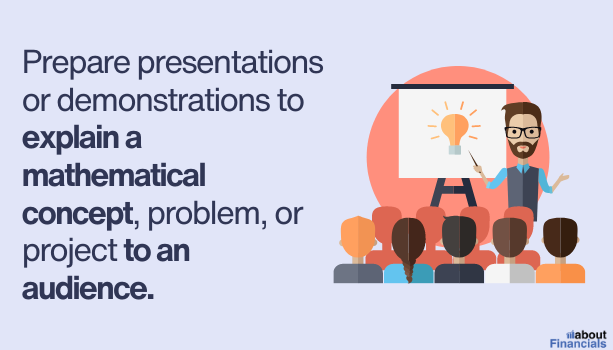
Practice delivering your presentation with clarity and confidence, using visuals or interactive elements to enhance understanding. Presenting your work allows you to convey complex ideas effectively and engage others in mathematical discourse.
Pro Tip – Develop a presentation on a mathematical concept or a project you’ve been working on, such as a data analysis project or a geometry exploration. Use visual aids, examples, and clear explanations to engage your audience and convey your mathematical ideas effectively.
28. Take advanced math courses
Explore higher-level mathematics beyond the standard curriculum offered in schools.
Enroll in courses that delve into topics such as abstract algebra, number theory, mathematical analysis, or advanced calculus.
These courses provide a deeper understanding of mathematical concepts and expose you to more rigorous problem-solving techniques.
Pro Tip – If you’ve completed the standard calculus curriculum, enroll in a university-level course that focuses on topics like multivariable calculus or differential equations. Embrace the challenge of learning new mathematical concepts and problem-solving strategies.
29. Pursue independent research or projects
Identify areas of interest or intriguing mathematical problems that capture your curiosity.
Conduct independent investigations, explore alternative approaches, and seek innovative solutions. Pursuing independent research or projects allows you to delve deeper into specific areas of mathematics and develop a deeper understanding.
Pro Tip – Choose a topic of interest, such as prime numbers or graph theory, and embark on an independent research project. Explore existing literature, develop your own hypotheses, and conduct experiments or mathematical analyses to test your ideas.
30. Compete in math competitions
Participate in local, regional, or national math competitions that align with your skill level. These competitions present you with a variety of complex and challenging problems that require creativity, critical thinking, and advanced mathematical skills.
By competing, you expose yourself to new problem-solving techniques and gain valuable experience under time constraints.
Pro Tip – Register for a math competition, such as the Math Olympiad or a local math league competition. Engage with the competition problems, analyze the solutions, and learn from the strategies employed by other participants.
31. Solve complex and challenging problems
Solve problems that require in-depth thinking, multiple steps, and creative problem-solving approaches.
Challenge yourself to go beyond the standard textbook exercises and explore problem collections or online platforms that offer a variety of challenging math problems.
Pro Tip – Find a collection of challenging math problems, such as those found in the Art of Problem Solving books or reputable online problem-solving platforms. Choose problems that are outside your comfort zone and tackle them step by step.
32. Find personal connections and interests in math
Explore different branches of math and discover areas that resonate with you. Look for applications of math in your own interests or hobbies.
By finding personal connections, you ignite your curiosity and motivation, making the journey towards math genius status more engaging and fulfilling.
Pro Tip – If you have a passion for music, explore the mathematical concepts behind harmony, rhythm, or the physics of sound. Investigate the mathematics of musical scales, chord progressions, or the mathematics of musical instrument design.
33. Follow the work of renowned mathematicians
Read books, articles, or biographies about mathematicians who have made significant contributions to the field.

Learn about their discoveries, struggles, and the impact of their work. By immersing yourself in the stories of great mathematicians, you gain insight into the beauty and power of mathematics and find inspiration to pursue your own mathematical journey.
Pro Tip – Read about mathematicians like Euclid, Pythagoras, Ada Lovelace, or Maryam Mirzakhani. Understand their contributions to mathematics and the challenges they overcame. Their stories can inspire you and provide a sense of awe for the possibilities within the field.
34. Attend math conferences or lectures
Explore conferences or lectures that align with your mathematical interests and attend talks by experts in the field.
Engage with like-minded individuals, exchange ideas, and gain exposure to cutting-edge research. The energy and enthusiasm at these events can reignite your passion for mathematics.
Pro Tip – Attend a local math conference or university lecture series featuring esteemed mathematicians or researchers. Listen to their presentations, ask questions, and engage in discussions with fellow attendees. This direct interaction with the mathematical community can provide inspiration and renewed motivation for your own mathematical pursuits.
35. Celebrate achievements and milestones
Recognize your progress, whether it’s mastering a difficult concept, solving a challenging problem, or achieving a notable academic milestone.
Take time to reflect on and appreciate your accomplishments, no matter how small. Celebrating these milestones reinforces your motivation, boosts your confidence, and encourages further progress.
Pro Tip – When you successfully solve a particularly challenging math problem or achieve a high score on a math test, reward yourself with a small celebration. It could be as simple as treating yourself to your favorite snack or taking a short break to engage in a hobby you enjoy. Acknowledging your achievements helps maintain motivation and fosters a positive mindset.
Benefits of becoming a math genius
Becoming a math genius unlocks a world of advantages that extend far beyond solving equations or acing exams. Here are some practical benefits of honing your math skills:
Analytical skills
Being a math genius equips you with exceptional analytical thinking abilities. You develop a keen eye for identifying patterns, uncovering relationships, and dissecting intricate problems. This invaluable skill can be applied in any discipline, enabling you to approach challenges with clarity and precision.
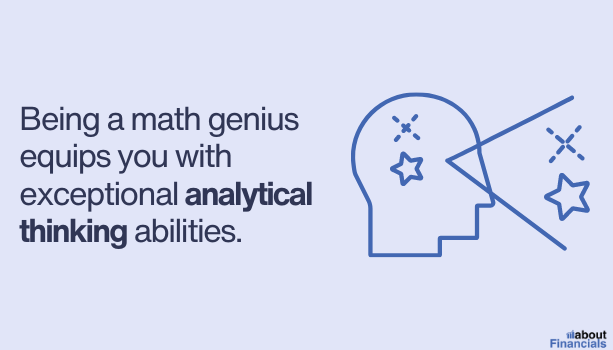
For instance, if you are a biologist studying animal behavior. By leveraging your math genius, you can analyze vast datasets and identify correlations between environmental factors and animal behavior, helping to unveil new insights and contributing to the field’s understanding of nature.
Problem-Solving
You learn to break down complex issues into manageable parts, explore multiple strategies, and devise creative solutions.
These problem-solving skills become second nature, empowering you to overcome obstacles in all areas of life.
As an entrepreneur, your math genius allows you to optimize your business operations. You can utilize mathematical models to forecast demand, allocate resources efficiently, and optimize pricing strategies, giving you a competitive edge in the market.
Critical Thinking Supremacy
Math geniuses can evaluate arguments, spot flaws in reasoning, and construct sound justifications. This skill is indispensable in navigating the complexities of the modern world, where misinformation and flawed logic abound.
Suppose you are a journalist investigating a controversial topic. Your math genius enables you to analyze data, interpret statistics, and identify biases, ensuring that your reporting is based on accurate information and compelling evidence.
Final thoughts
By following the actionable steps outlined in this guide, you can lay a strong foundation, enhance your problem-solving skills, and explore real-world applications.
How to become a math genius? It starts with your commitment to learning and your unwavering belief in your own abilities.
Remember, becoming a math genius is not an overnight achievement but a continuous pursuit of knowledge and growth.
With dedication and passion, you have the potential to unravel the mysteries of mathematics and become a true math genius.

